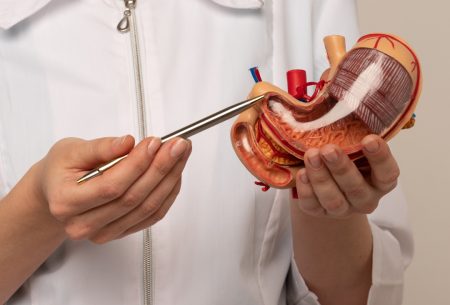Hot off the press, a new paper suggests a benefit of gut therapies in PCOS!
But first, what actually is PCOS?
PCOS (polycystic ovary syndrome) is really rather common, with symptoms usually appearing in a woman’s late teens-early 20s. Essentially it’s a condition that affects how a woman’s ovaries work, related to irregular hormone levels in the body. Some of the common signs include irregular or no periods, difficulty getting pregnant, excessive hair growth, thinning hair and oily skin. We don’t know the exact cause, but likely a combination of genetics and environmental factors.
This new systematic review (when intervention studies are pooled together, 13 in this case) looked at the effects of probiotic and synbiotics – that’s prebiotics and probiotics combined – in those with PCOS.
What did they find?
Overall, the review suggested a benefit of probiotics and synbiotics – as they found it could lower the amount of active hormones in people’s circulation (a good thing in PCOS!) compared to the placebo group.
So, should you take a probiotic or synbiotic for PCOS?
Well, unfortunately the study was pretty limited when it comes to the specific number, types of probiotics and populations (most studies were undertaken in people of Iranian descent). Also, although the results were significant, it certainly wasn’t a ‘cure’ for PCOS. It’s a complex condition and definitely not a one-size-fits-all approach. So I would say generally speaking hold off on supplements for now until more research is done.
Instead, focusing on looking after your gut with plenty of plant-based diversity, de-stressing strategies and introducing fermented foods is probably worth trying first!
If you’re interested in the supplements, chat to your healthcare professional to decide what’s right for you.














